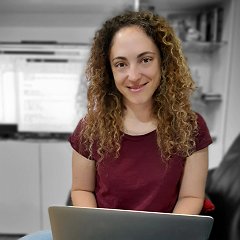Is this all about handling unanticipated changes or about foreseeing what needs handling?Community Debate Paper
I am not convinced that the challenge for self-adaptive software is how to handle unexpected changes. I believe that the real challenge is how to characterise the uncertainty that the self-adaptive software has to handle. Once a proper characterisation of the uncertainty is in place, I think handling unanticipated changes and situations becomes a lot simpler. What is difficult is to know what range of uncertainty that self-adaptive software should be designed for. To use an autonomous driving example: should we expect people to jump in front of the vehicle or can we ignore that part of the problem because we are driving in a freeway and there are supposed to be no people around? The ultimate challenge then becomes providing guarantees and legally valid contracts and understanding where the responsibility lays in case of errors.
I am a Professor at the Computer Science Department, Saarland University. I also have a partial affiliation as an Associate Professor at the Department of Automatic Control, Lund University. I completed my Ph.D. at Politecnico di Milano, working with Alberto Leva on the applications of control-theoretical tools for the design of computing systems. During my Ph.D. I spent one year as a visiting graduate student at the Computer Science and Artificial Intelligence Laboratory at MIT, working with Anant Agarwal and Hank Hoffmann on the Self-Aware Computing project. I joined Lund University in 2012 as a postdoctoral researcher, working with Karl-Erik Årzén on resource allocation for cloud infrastructures and real-time systems. I became an Assistant Professor in 2014, and then Docent and Associate Professor in 2017. In 2019 I spent a sabbatical year at Bosch Corporate Research in Renningen, Germany, working with Dirk Ziegenbein and Arne Hamann on the verification and validation of control systems in presence of deadline misses and computational faults.
Wed 19 MayDisplayed time zone: Amsterdam, Berlin, Bern, Rome, Stockholm, Vienna change
Go directly to this room on Clowdr
